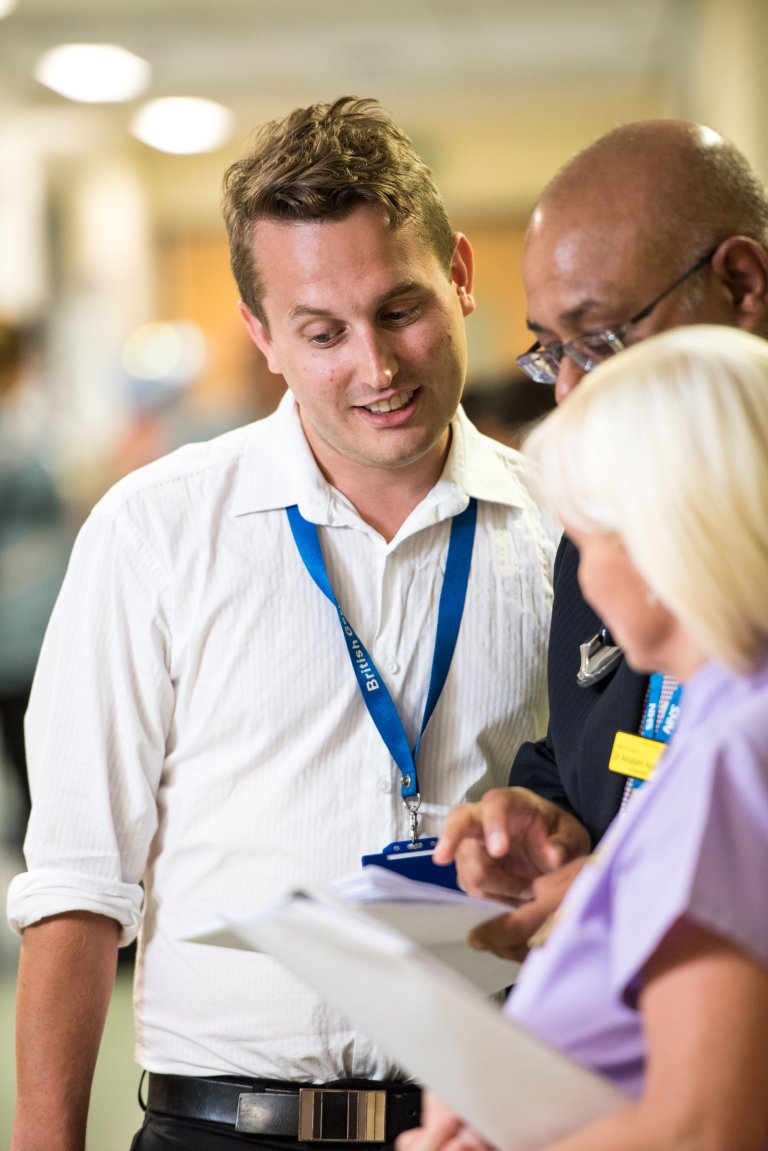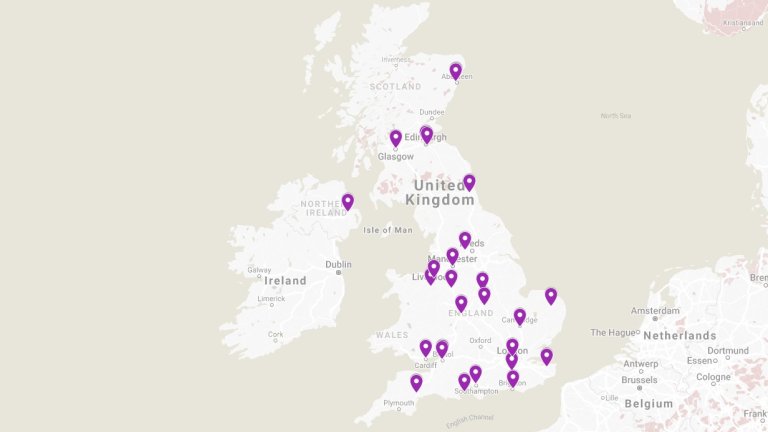If you had asked me a year ago whether I would consider doing research, I would have said that it had never crossed my mind. Why? Well I had the preconception that research was only for the career academic, not the "normal" trainee like me.
I hadn't even done an intercalated BSc. While my chums intercalated, I took a year off medical school, headed off to the Belize jungle to live in a hammock and build stuff! So why would I choose to go into research? Yet here I am. This guide gives you a perspective from the perspective of a more clinically orientated trainee. I hope to give you an idea of why to think about doing research, what you will get out of it and what qualities you need. Hopefully, I will also challenge the myth that research is only for geeks!
Why I changed my mind
I got into research by being in the right place at the right time. I happened to hear about a funded clinical fellow post and impulsively, I applied and got it. Then I realised what I had done! I had liked the sound of the job when I applied, but it didn't really dawn on me until I had started that I'd signed up to be a researcher. Nevertheless, I'm glad to say I don't regret it. If I had realised how rewarding research could be, I would have given more consideration to it as an option, and would probably have actively looked for it. But nobody tells you what to expect to help you decide.
If I had realised how rewarding research could be, I would have given more consideration to it as an option, and would probably have actively looked for it.
I spent the first three months getting on okay but often gravitating to the clinical stuff that I felt more knowledgeable about and more comfortable with. The most useful thing I did was attend my university PhD writing group. This was a group with other PhD students, where you critique each other's work and talk about "research issues". At first, I was a bit apprehensive to say the least. But in the end, it actually made me relax. The group made me realise that nobody has a clue what they are doing when they start out, that's why we are here, to learn. I wasn't that different to everyone else, neither are you.
Now 6 months on, I wouldn't say I'm an expert on research by any means, but I can see I know more and more every day, and I am thinking more "researchy" too! I wouldn't say it's easy, it's not, it's hard work. But it's not harder than doing clinical work, just different.
What will you get out of it?
The main reason to do research is that you do learn loads. In some ways it's a bit like being back at medical school, going to the library, reading to discover new things. But it's more fun than medical school. You set out to discover and research something new, something that nobody else has done. That can be exciting and rewarding.
When reading, you can see how relevant it is to your project instantly. You start becoming a bit of an expert in your chosen area. You suddenly start understanding statistics a bit, where before it would make you break out in a cold sweat. It's amazing how much more you understand statistics if you have the time and the need to learn it. This also helps you to evaluate other published work - sometimes not all data is as impressive as it first appears. It's rewarding when you realise how much more you know and when your own work gets published.
It's rewarding when you realise how much more you know and when your own work gets published.
It's also a great opportunity to take time out. There is no rush to being a consultant, after all you will probably end up being one for more than 30 years! It's great not being on call and having all my weekends free. Most trainees intend to do weekend locums but many don't after the taste of medical take free weekends! When else in your life will you have all your weekends free?
Even if you don't want to be an academic consultant, to have some background so that you can weigh up the evidence to better inform your practice and so you can guide your trainees makes it worthwhile.
What qualities do you need?
To do research, every trainee is "clever" enough. It's more about whether you like the idea of it, and accepting that by doing it you will be out of your comfort zone to learn. The main qualities you need is to be the type who is hard working and the kind of person who always completes things and be quite determined about that. That's all.
What next?
There are different ways of getting into research including funded clinical fellow posts, make your own and get funding or some do smaller projects whilst doing clinical work. The already funded clinical fellow posts (like mine) do come up from time to time but you need to keep an eager eye for adverts, you could quite easily miss one if you don't look regularly. It's far better to proactively search for research active consultants and trainees. They will be able to give you advice and put you in touch with researchers who have similar interests. It's always easier to hear about jobs when you are in the loop. To make it on your own and find funding might sound more daunting, but when you start talking with those who have been through it, it's not quite as scary as it sounds.
The best first step is to start talking with trainee and consultant researchers to hear more. This is whether you think you are definitely interested, maybe interested or just want to know a little more first. Everyone is keen to encourage more research so will usually be helpful. If go to the research centres page, you will find the contact details of research centres across the UK with the research active consultants listed. Everyone will be more than happy to hear from you and may be able to guide you to the most useful people for you. In addition, your training programme directors should be able to direct you to research supervisors in your region.
Don't feel that to contact a researcher that you should have a clue what you are talking about, nor necessarily know at this stage what you want to research. Nobody expects that. Just that you are keen to know more. It can be hard to find the right people but if you have no joy with one, then try another then another. A bit like when you have sick patient who no one will take, you just keep trying until you get someone helpful.
You don't necessarily have to start with a full blown PhD or MD. You could think of small projects to do this alongside your clinical work (soon to be a guide from Rosie Belcher on this on the website).
So to sum up, research is for everyone, not just for super geeks! All geriatrics trainees are more than capable. It's just about making that leap of faith, you won't be disappointed.
Why do research?
It benefits society
It would be stating the obvious that research benefits society in general, and the altruism underlying this reason may be the last one many of us embark on research, whether in medicine or pure science. Nevertheless, it is worth reiterating that research, whether basic or applied, is the most important means of adding to our knowledge of ageing, disease and the individual. Consequently, if you do good quality research you will have a real influence on clinical practice - even if this influence seems several steps down the line. Additionally, as a research-trained clinician, you have the opportunity to make sure that ongoing research is useful and relevant to the care of older people.
Taking a break from clinical practice
Another plus is that taking an extended break from day to day clinical work allows you to stand back and look at medicine from a different perspective. Part of this comes through working with non-clinical scientists and technicians, as well as senior academic clinicians. Many trainees returning to clinical practice after such a break feel refreshed and armed with new perspectives.
Development of skills
Researchers develop several general skills: public speaking, scientific writing, a deeper understanding of research methodology and statistics, running projects, organisation, computer literacy, evaluation of published papers and presentations at research meetings, and the knowledge to supervise or give advice to junior colleagues interested in research. All of these skills are fundamental to whatever consultant job you end up doing.
Career benefits
An MD or PhD is very important, even essential, if you want to be an academic physician. However, publications and/or an MD or PhD thesis undoubtedly help in competing for all posts, particularly in centres active in teaching and research. This is not just because you have specialised knowledge but also because completing a research degree or publishing papers demonstrates that you have multiple transferable skills, as well as no small amount of tenacity.
Personal development
Doing research can be intensely satisfying. It provides the opportunity to become an expert in your subject and this may be the start of your lifetime's special interest. Knowing that you have made a contribution to your area is tremendously fulfilling, and many researchers find that publishing in journals read by their peers worldwide is a great pleasure.
Finding a project
Geriatric medicine involves all organ systems in the context of ageing and disease. Geriatricians also have a strong interest in improving the quality of healthcare of older people. Therefore, the research possibilities in our specialty are unusually diverse, from lab-based molecular biology projects to health services research. Because of this, collaborations with researchers from other medical specialties are common.
There are several routes to setting up a project. Often trainees are offered a research opportunity by a senior colleague who has a project in mind. Otherwise, with some ideas of the kind of research you might like to do, you need to find someone with research experience in your desired field to speak to about it. If there is no one available locally, perhaps a senior colleague has contacts elsewhere. You could also make contact with key researchers, perhaps at a BGS scientific meeting. A Medline survey can reveal researchers active in your field: virtually all would be delighted to hear from those who share their interest.
Once contact with a potential supervisor has been made, think through the following key components of a successful period of research before committing yourself:
- The project: should fit with your areas of clinical and scientific interest and also the kind of research you think you'll enjoy doing. For example, you might prefer patient-based investigation to lab work. You should also think about the final outcomes of the project. By definition any scientific investigation involves uncertainty, but some projects are heavily based on methodologies which are not properly developed. In our opinion, inexperienced researchers should aim for a project which will yield interpretable results (negative or positive).
- The supervisor: should be someone who has an established track record of successful publications in respected journals (check on Medline) and grant applications. Your supervisor should also have a good reputation with research students - speak informally to as many researchers as possible - and should be someone with whom you will get on.
- The institution: aim for a centre with an established track record and with the infrastructure to support your work.
Funding your project
Next, you and your supervisor (usually with other collaborators) would probably need to write a grant application to provide your salary and other research expenses. Funders include the British Geriatrics Society (see main webpage), the Medical Research Council, the Wellcome Trust, Research into Ageing, the Alzheimer's Research Trust, the Stroke Foundation, the Chief Scientist's Office in Scotland, and the British Heart Foundation. Virtually all require the applicant to have passed the MRCP or equivalent, but a training number is not necessary.
You need to think ahead: writing the application takes weeks, and funders take months to reach a decision. Therefore, the application should be submitted about a year before your intended period of research. Overall, it's a painstaking process but it's a wonderful feeling when you receive the award letter.


